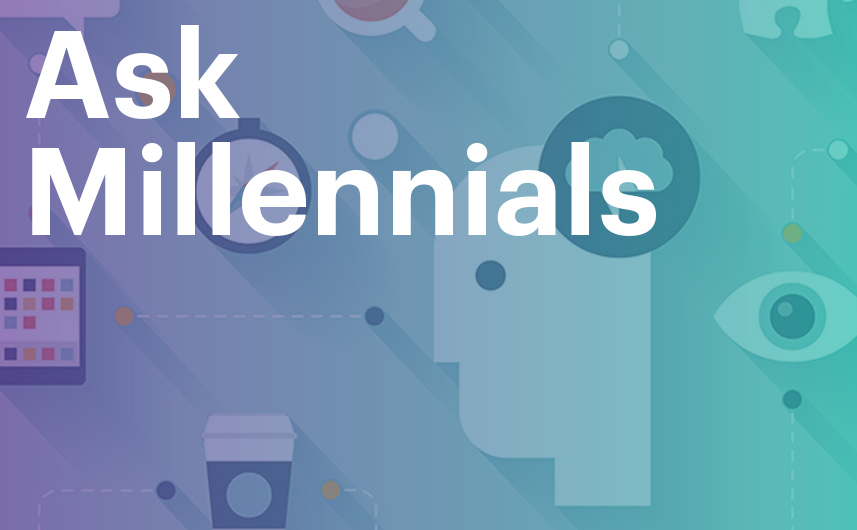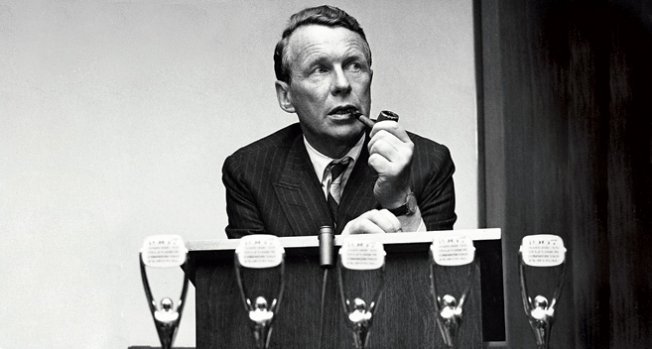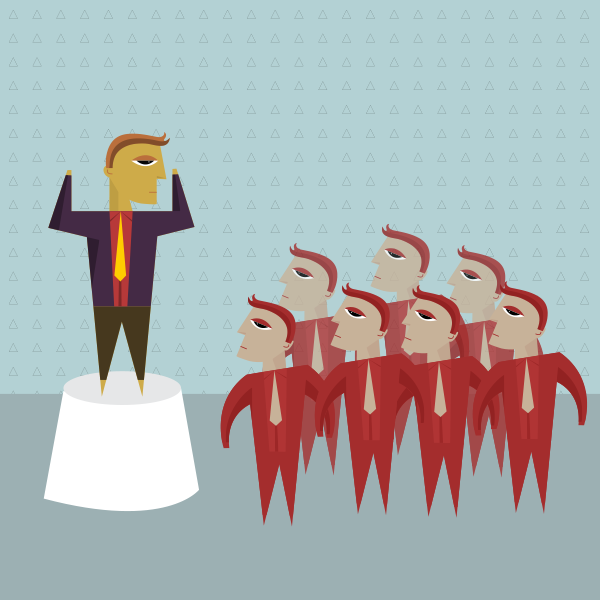This is the second installment in our weekly series entitled “Meaningful Millennials”, where we interview millennials on a variety of different subjects that are top of mind for us in the studio.
As a brand strategy firm, we work with our clients to help develop strategies that enable their brand, their business, and their workplaces to be more meaningful. This year, there has been a lot of work in the studio around employer branding, improving employee engagement, shifting culture, recruiting top talent internationally, and understanding how to create a meaningful workplace for millennials.
So, as a millennial myself, I asked other millennials: What makes a workplace meaningful for you?
What makes us come to work each day? What creates purpose and drives productivity? What adds meaning to everyday work life?
I reached out to 12 millennials and the following are the top-line findings:
- Human, one-on-one connections and relationships in the workplace foster feelings of support, belonging, and growth that are really important for millennials.
- We don’t want work to be just work. We long for a work culture that encourages balance – a space for learning, growing, and risk taking.
- Workplaces that share our values encourage this growth because they make us feel naturally connected to what we do.
- Millennials want to care about the work we do and want the people we work with to care, too. We like sharing values with co-workers, but also enjoy independence and the freedom to be our authentic, unique selves within the workplace. This stimulates creativity and productivity, and adds meaning to each day.
Want more specifics? Here’s what millennials have to say.
“A meaningful workplace is one that helps you grow and achieve what you would not be able to independently. I hate the idea of work-life balance and clichés like ‘do what you love.’ Work is part of your life. Every aspect should be lived and enjoyed wholly.”
—Bryan Ku, Designer at SYPartners, CCO at Nerd Skincare, Creative Director at Hummock Island
“Levity. The opportunity to talk and joke with one’s co-workers.”
—Beau Sperry, Post-Baccalaureate Fellow, Biomedical Ethics Research Program at Mayo Clinic
“Overflow of trail mix. Having morning meetings to chitchat, bounce around weekend plans, goals, and aspirations. Setting up silly monthly challenges like ‘squat challenge Mondays’ to keep the environment active and healthy, which in turn makes for a productive team. Setting up mandatory ‘social’ jogs around the office keeps the energy up and is an easy way to get to know your co-workers quirks, values, and vulnerabilities. Lastly, lots of photos! A bulletin board full of inspiration, families, friends, and funny office moments brings meaning to walking into the office every day. Oh, and a gratitude jar.”
—Sarina Karwande, Student of Physical Therapy, Western University of Health Sciences
“A meaningful workplace is one with smiling co-workers greeting you in the morning, as well as saying their goodbyes to you in the evening; colleagues patiently helping coach and provide the proper advice for all your unanswered questions; and, most importantly, laughter filling the room the majority of the day.”
—Lauren Rhodes, People Coordinator, Coupa Software
“Easy. One word: windows. And not the OS.
Employers, please, window your workplace. Go gaga for glass. Our brains thank you.”
—Nick Martino, Publications Assistant, Public Library of Science
“My idea of a meaningful workplace is somewhere where everyone is a team player and the idea is to be the most productive while having an enjoyable time at work.”
—Isabelle Hale, Interactive Accountant, Snipp
“My workplace has felt most meaningful in moments when our team is able to step back from the flurry of details and logistics to talk about the impact our work has on the world. To situate the sometimes-tiring work of email and spreadsheets within our real mission as an organization is invaluable. I am lucky enough to have landed in a workplace with mentors who encourage this sort of ‘zooming out”’that makes the day to day consistently inspiring.”
—Nicole Stanton, Program Coordinator, Aspen Words
“Work/life balance is a high priority to me. A meaningful workplace is also somewhere where you are able to enjoy your co-workers on a deeper level, rather than just as colleagues. You spend more time with your co-workers than you do with your family and friends, so it’s important that you have a strong and supportive team.”
—Shannel Singh, Senior Staff Accountant, Riaz Inc.
“The ability and opportunity to take risks and have support from those in your workplace to those risks is meaningful to me. If you’re lucky enough to work in an environment that allows you to express the love you have for whatever craft you are passionate about, then allowing yourself to expand your interests with the support of others is one of the best situations you can be in.”
—Axel Cubias, Freelance Grip
“I think the relationships I build make a workplace most meaningful for me. Even if you absolutely love what you do, the people you do that with are what make your experience fulfilling. Beyond that, good working relationships are what foster support, creativity, personal growth, and just overall positivity! I also think having a deeper motive or goal makes a workplace meaningful. It would be really hard for me to work somewhere where people just go through the motions or don’t feel at least some connection to what they do.”
—Avery Geisler, Strategy Associate, Initiative
“Being comfortable in the workplace is huge. I don’t mean that I have to wear a T-shirt and jeans, but comfortable as in ‘I like the people I work with and enjoy what I’m doing.
Tech is so huge around San Francisco and start-ups are on every corner. They all do a good job of trying to create this “sexy” look to bring in employees with arcade rooms, events, and fun perks. For me, that sounds like fun, but it can easily distract from what is really important. For me, that’s a company’s values.”
—Alex Hanepen, Information Systems Intern
“I’ve spent countless hours slaving away in the service industry as a butcher and cosmetologist to realize I’m not a magician, but a killer with a knife. Now, I’m a writer for an awesome company producing work that’s not only important to me, but has a positive impact on my life. I’ve found that if you want your work to be more than a job, and instead be a positive force in your life, you need three things:
- self determination: being in control of your own choices
- complexity: being able to master new skills and grow
- direct connection between effort and award: seeing the payoff—whether financial, spiritual, or personal
The combination of these three things made my work meaningful.”
—Lauren Padia, Technical Writer, Salesforce
“In my opinion, the center of a meaningful workplace is the creation and focus on a cohesive workplace culture; a culture in which there is an understanding of work/life balance, an understanding that life outside the office comes first, and an understanding that we no longer live to work, but rather work to live.”
—Joshua Goldsmith, Brand Manager, Mark Miller Subaru
Here’s what we learned this week from millennials.
- Relationships within the workplace matter.
- Open the windows. Take a walk. Sunlight and lightheartedness are essential.
- Balance is key. Work/life balance, feeling comfortable enough to take risks, being supported to succeed, and the ability to constantly grow and learn.
- Focus on the greater impact of your work and your core purpose as an employee. This adds meaning to everyday and makes millennials feel like they are making a difference and doing work that matters.
Next week, we will continue our “Meaningful Millennial” series, discussing what drives brand loyalty for millennials.
Emotive Brand is a San Francisco brand strategy and design consultancy


























